The Dictatorship
‘Cruelty was the point’: Jacob Soboroff previews new documentary detailing Trump family separation


-
Now Playing

-
UP NEXT

‘Giving his middle finger to the American people’: Bob Woodward reacts to Trump Cabinet picks
12:26
-

Psaki: Democrats are learning the wrong message on trans youth
10:03
-

Weissmann: ‘This is not the time for Matt Gaetz to learn on the job as Attorney General’
07:02
-
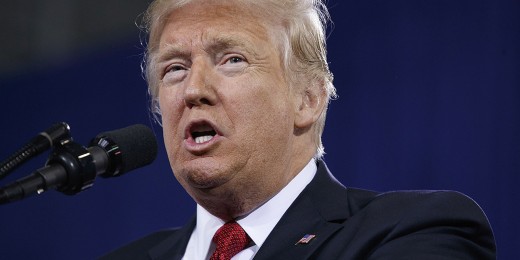
‘Ultimate authoritarian move’: Trump demands Senate leader allow recess appointments
10:08
-

‘Pure projection and total bunk’: Rep. Goldman blasts Jim Jordan for plan to target Jack Smith
07:02
-
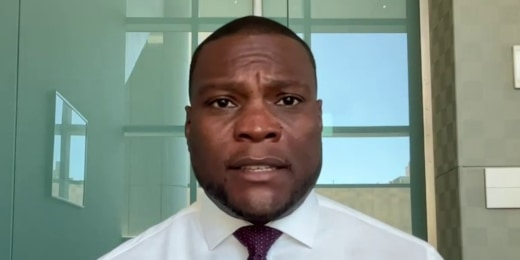
First Black mayor of Tulsa Monroe Nichols on being elected mayor 103 years after Tulsa Race Massacre
08:22
-

‘He will lose in court every day of the week’: Katyal on Trump’s immigration agenda
07:39
-

‘What now?’: Jen Psaki on what happened, where Democrats go from here
12:11
-

Donald Trump wins 2024 election | BLN
03:05
-
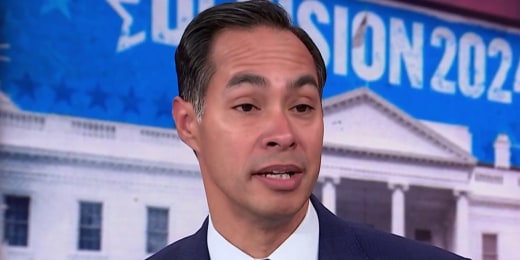
‘This will rewrite how the parties approach Latinos’ – Latino support for Trump increases from 2020
07:26
-
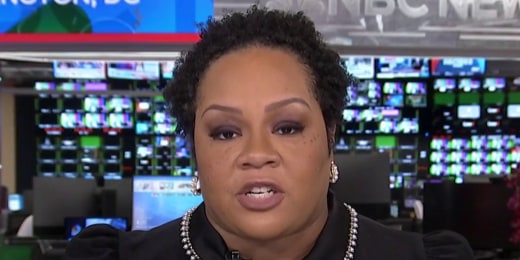
‘It just got darker and darker’: Alcindor reveals Harris campaign’s reaction to Trump performance
08:37
-

‘There is a fundamental brand problem with the party’: Psaki & experts diagnose Harris performance
10:31
-
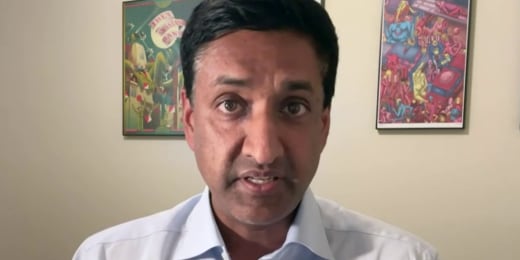
‘The rebuilding starts today’: Congressman Khanna discusses the Democratic Party’s path forward
07:04
-

‘The momentum is on her side’: Psaki & experts on closing polling for Harris
07:01
-

‘This old ghost’: Lawrence previews Trump’s ‘stupid’ election night move
11:59
-
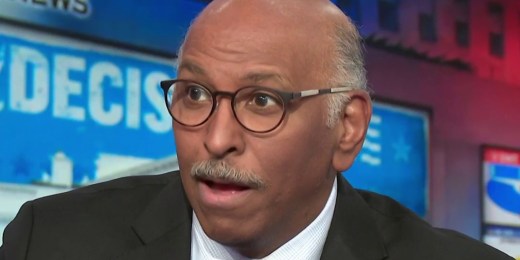
‘Losing oxygen, fast’: Psaki & experts react to chaotic final days of Trump campaign
11:49
-

‘I didn’t want to just panic’: Billy Eichner reveals why he started ‘Loud white men for Kamala’
07:01
-
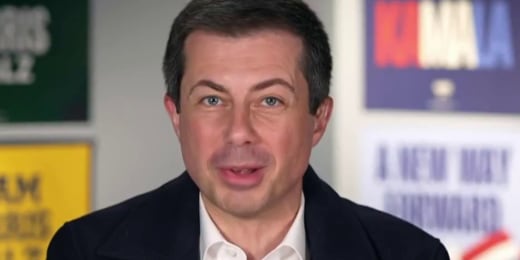
Pete Buttigieg reacts to shocking Iowa poll showing Harris ahead: ‘I could see it’
12:22
-
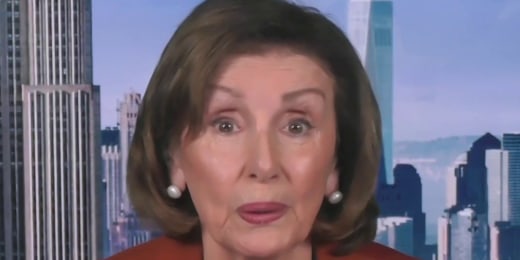
Pelosi: Trump can’t last as president with ‘brain deteriorating’ at this rate
07:56
-
Now Playing

‘Cruelty was the point’: Jacob Soboroff previews new documentary detailing Trump family separation
10:26
-
UP NEXT

‘Giving his middle finger to the American people’: Bob Woodward reacts to Trump Cabinet picks
12:26
-

Psaki: Democrats are learning the wrong message on trans youth
10:03
-

Weissmann: ‘This is not the time for Matt Gaetz to learn on the job as Attorney General’
07:02
-

‘Ultimate authoritarian move’: Trump demands Senate leader allow recess appointments
10:08
-

‘Pure projection and total bunk’: Rep. Goldman blasts Jim Jordan for plan to target Jack Smith
07:02
The Dictatorship
Vance’s ‘door to door’ rhetoric is reminiscent of Gestapo
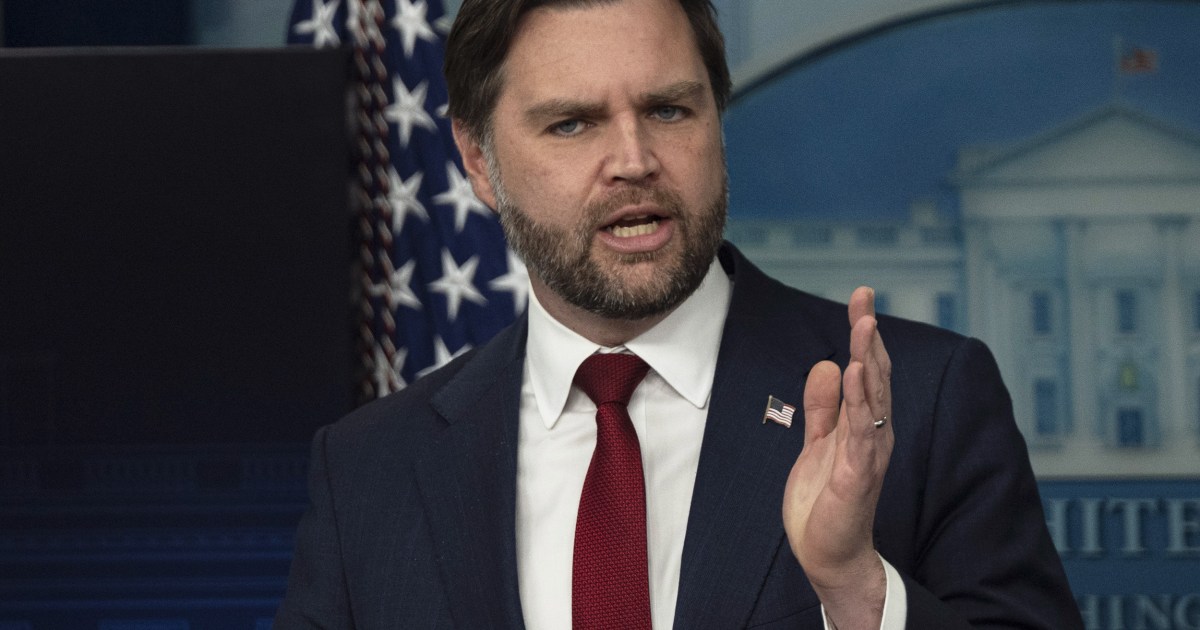
Vice President JD Vance seems to want Americans to get used to the prospect of masked government agents at their door as the Trump administration ramps up its racist anti-immigrant crackdown.
After widely decried shootings by U.S. Immigration and Customs Enforcement this week — at least one of them deadly — Vance shared the Trump administration’s plan for increased numbers of ICE agents going door to door in search of immigrants. (Numerous American citizens have been detained and reportedly abused by ICE agents since Trump retook office.)
During a Fox News interview that aired on Wednesday, Vance said he expects to see “deportation numbers ramp up as we get more and more people online, working for ICE, going door to door and making sure that if you’re an illegal alien, you’ve got to get out of this country.”
JD Vance; “I think we’re gonna see those deportation numbers ramp up as we get more and more people online, working for ICE, going door to door” pic.twitter.com/8oIt4rCXhP
—Aaron Rupar (@atrupar)”https://twitter.com/atrupar/status/2009108125266174082?ref_src=twsrc%5Etfw”>January 8, 2026
Vance made similar comments a day later at the White House, where he railed against media outlets for their coverage of an ICE agent’s deadly shooting of Renee Good in Minneapolis. While spewing brazen lies to defend the agent who shot Good, Vance said immigration agents had been “going door to door to try to find criminal illegal aliens and deport them from the United States of America.”
Are ICE agents literally going door to door to random homes, searching without cause for illegal immigrants? The acting director of ICE has said agents are going door to door to businesses, without suggesting the same about residences.
Door-to-door immigration operations at people’s homes would mirror tactics deployed by Nazi storm troopers and members of the Gestapoduring Hitler’s genocidal reign over Germany.
As the United States Holocaust Memorial Museum explains on its website:
In the months after Hitler took power, the SA and Gestapo agents went from door to door looking for Hitler’s enemies. Socialists, Communists, trade union leaders, and others who had spoken out against the Nazi Party were arrested, and some were killed. By the middle of 1933, the Nazi Party was the only political party, and nearly all organized opposition to the regime had been eliminated. Democracy was dead in Germany.
The similarities seem obvious.
And keep in mind that the same DHS is actively gearing up to target liberals and critics of the Trump administration under the guise of fighting domestic terrorism. So it’s not that hard to imagine the Trump administration sending masked government goons to Americans’ doorsteps at any time and for any reason.
And this, we’re told by the MAGA horde, is what freedom looks like.
Ja’han Jones is an MS NOW opinion blogger. He previously wrote The ReidOut Blog.
The Dictatorship
Trump’s $100 billion Venezuela pitch meets oil industry skepticism
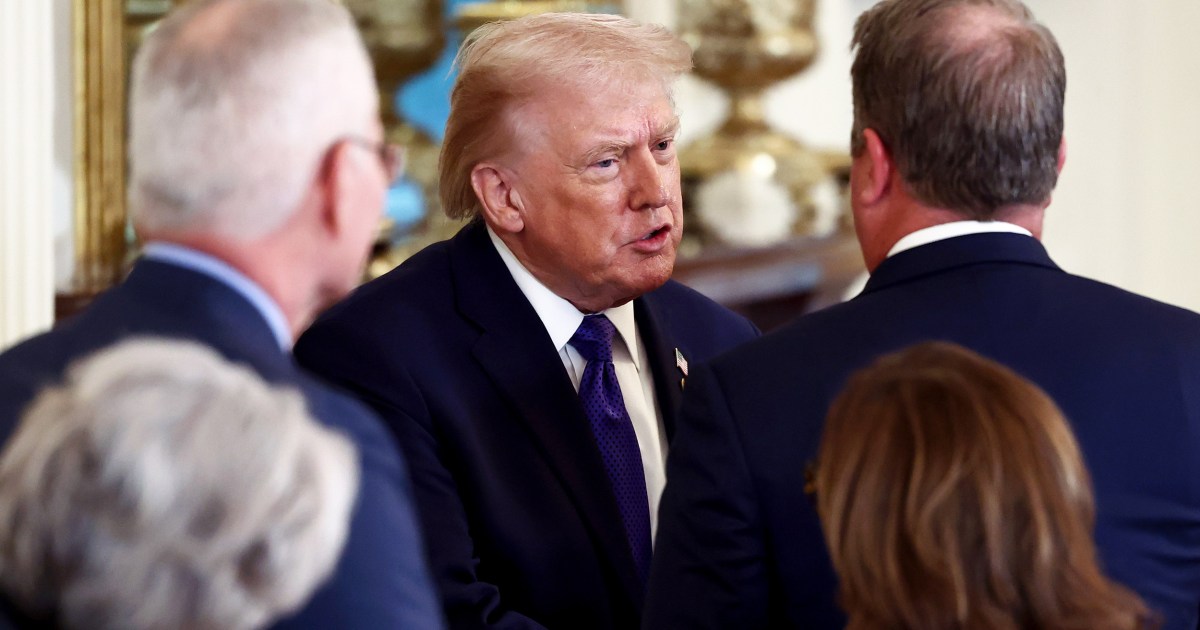
President Donald Trump on Friday urged nearly 20 American oil executives to invest a combined $100 billion in rebuilding Venezuela’s decrepit energy infrastructure, presenting the plan as a way to drive down global oil prices and ease costs for American consumers.
But oil industry leaders have expressed deep skepticism about pouring substantial capital into Venezuela, where profitability and government stability remain deeply uncertain. Several energy giants have lost billions of dollars in previous Venezuelan ventures, and executives in attendance on Friday said they would need to see “significant” changes in the country before they could invest.
“You can imagine to re-enter [Venezuela] a third time would require some pretty significant changes from what we’ve historically seen here and what is currently the state,” Exxon Mobil CEO Darren Woods said at the White House meeting. “Venezuela today, it’s uninvestible, and so significant changes have to be made to those commercial frameworks, the legal system.”
Asked what backstops would be implemented to prevent oil companies from losing billions if Venezuela becomes unstable, Trump said that the companies “know the risks.”
Trump’s proposal envisions top executives from Chevron, Exxon Mobil, Shell and other major oil companies dramatically boosting Venezuelan oil production to reduce global prices to around $50 per barrel.
“The plan is for them to spend — meaning our giant oil companies will be spending at least $100 billion of their money, not the government’s money,” Trump said in the East Room on Friday. “They don’t need government money, but they need government protection and need government security.”
Trump attempted to assuage industry concerns by promising them “total safety” and “total security” if they agreed to drill in Venezuela, and said companies would “mostly be using Venezuelan workers” on the ground. But those promises lacked specifics about how such guarantees would be enforced.
Trump’s vision includes routing revenue from the sale of Venezuelan oil sales into accounts controlled by the U.S. government. In a New York Times interview on Wednesday, Trump said the United States could quickly generate vast oil revenues in Venezuela and would maintain control over that nation’s government for “much longer” than a year.
Earlier this week, the White House announced an agreement with Caracas that will require Venezuela to export up to 50 million barrels of oil to the United States. Revenue from the oil, Trump said, will be “used to benefit the people of Venezuela and the United States.”
The United Nations, along with other international allies, have criticized Trump’s stated goals as interference in the affairs of a sovereign nation. U.S. officials and election experts have long accused ousted Venezuelan President Nicolás Maduro of election fraud and classified his government as illegitimate.
At the Friday meeting, Trump also spoke openly about acquiring other countries’ territory, warning that if the U.S. doesn’t “take Greenland” — a self-governing territory of Denmark, a NATO member and U.S. ally — then China or Russia would move in. He suggested it could be acquired “the easy way or the hard way.” A takeover of Greenland could threaten the existence of the North Atlantic Treaty Organization, which has undergirded the post-World War II security of the Western world.
Sydney Carruth is a breaking news reporter for MS NOW.
The Dictatorship
DHS labeling Renee Good a ‘violent rioter’ fits its ongoing propaganda campaign
After ICE officer Jonathan Ross killed 37-year-old Renee Nicole Good in Minneapolis on Wednesday, DHS Assistant Secretary Tricia McLaughlin immediately blamed the victim. She said ICE offices were “conducting targeted operations when rioters began blocking ICE officers and one of these violent rioters weaponized her vehicle, attempting to run over our law enforcement officers in an attempt to kill them.”
Video footage from the scene doesn’t seem to support the government’s description of Good or capture the complexities of the scene, and Ross hasn’t been charged with a crime. But McLaughlin’s “violent rioter” label wasn’t an off-the-cuff remark. Rather, this is a phrase the Trump administration, particularly DHS, has regularly and quite purposefully used to characterize people who show up to oppose its officers and actions.
This is a phrase the Trump administration has regularly used to characterize people who show up to oppose its officers and actions.
Chicago was the site of many protests throughout the fall and winter, as ICE agents flooded the city streets during Operation Midway Blitz. DHS consistently described those protests with one-sided, inflammatory language. On Nov. 14, for example, DHS posted a video on X that characterized protesters outside an ICE facility as “violent rioters” attempting to secure the release “of some of the worst human beings on planet earth.” Jack Jenkins, a reporter for The Christian Century who was present that day, wrote that among the peaceful protesters that day was the Rev. Michael Woolfa Baptist preacher who, Jenkins reported, was standing “alongside fellow protesters, fiddling awkwardly with his backpack as faith leaders and other protesters chant slogans at a line of police officers.”
When an officer walked up, grabbed Woolf’s wrist and yanked, Jenkins reported, “Demonstrators attempted to hold onto Woolf, who was wearing a clerical collar, but four officers wrenched him from the crowd and tossed him to the ground.”
Womp womp, cry all you want. These criminal illegal aliens aren’t getting released.
Like clockwork, violent rioters have arrived at the Broadview ICE facility to demand the release of some of the worst human beings on planet earth.
Get a job you imbecilic morons. pic.twitter.com/k4HdE5IqNu
— Homeland Security (@DHSgov) November 14, 2025
Also in Chicago, Marimar Martinez was shot multiple times by a CBP agent in October, who claimed he was acting in self-defense after she assaulted him with her car. A DHS statement called Martinez a “domestic terrorist” and initially charged her and a co-defendant with assaulting, resisting or impeding federal officers — only to drop the charges before the case could fully get underway. A defense attorney said bodycam video showed an agent drove into Martinez’s truck.
As The Guardian pointed out, “Since Operation Midway Blitz began in September, the Department of Homeland Security (DHS) has characterized protesters as violent rioters and vowed to prosecute them to the fullest extent of the law. But of the more than two dozen people arrested for impeding or assaulting federal officers or other protest-related offenses, none have gone to trial and charges have been dropped against at least nine of them.”
There’s no doubt that some federal agents have been confronted by violent individuals who want to hurt them, but the government’s broad, seemingly reflexive use of “violent rioters” has helped push the noxious idea that it’s criminal to publicly gather and express outrage at government officials and law enforcement as they carry out Trump’s deportation agenda. In Minneapolis, the government seems determined that we not think of Good as an American who had the right to object to her government’s actions. They want us to reduce Good to a “violent rioter” who got what violent rioters are due.
This attitude has been confirmed by leadership at some of the highest levels of the U.S. Border Patrol. During an Oct. 30 deposition related to a lawsuit alleging overly aggressive immigration enforcement tactics in Chicago, Locke Bowman, a lawyer for plaintiffs, asked U.S. Border Patrol Commander Gregory Bovino a question about how federal agents had responded to “protesters.” Bowman said agents had responded “to violent rioters and assaultive subjects.”
“Will you acknowledge that some of those at the Broadview facility who came to that location to protest are not violent rioters and assaulters?” Bowman asked. And Bovino said, “I don’t know what they are.”
Quoting Bovino’s phrase “violent rioters and assaulters,” the lawyer asked, “Have you ever interacted with anybody who wasn’t that?”
“I can’t remember,” he replied.
It’s noteworthy that, in that deposition, Bovino’s refusal to acknowledge the presence of peaceful protesters at that Broadview ICE facility came after the attorney showed him video of Pastor David Black being shot in the head with a pepper ball. His refusal also came after Bovino was shown video of the CBP commander climbing over a barrier and personally tackling a man who was walking away after calling Bovino a fascist. (Despite the video evidenceand to a federal judge’s dismayin the deposition, Bovino wouldn’t even admit he’d tackled that man.)
I shared the lawyer’s exchange with Bovino with Ashley Howard, author of “Midwest Unrest: 1960s Urban Rebellions and the Black Freedom Movement,” who has written thoughtfully about the way the words “riot” and “rioter” have been used to depoliticize and delegitimize violent protest. But, in this case, the federal government is using “riot” to describe nonviolent protest. Bovino was shown the video footage of the pastor being hit by federal agents and still wouldn’t say whether any peaceful protesters had been in attendance.
“It would be comically absurd if it wasn’t so terrifying,” Howard said, of Bovino’s testimony. “People who can use force with impunity need to justify the use of that force, and so they must portray these people, regardless of how they’re engaging, as violent, as rioters.”

“They have a vested interest in suppressing this type of protest,” Howard noted, “and so they need to drum up this idea that they are in imminent danger and that the people who are out in the streets pose an immediate and violent threat.”
To be clear, the stretchy use of the word “riot” didn’t start with the Trump administration. Howard’s book, which focuses on the 1960s, quotes the U.S. criminal codewhich shows that it’s easy for the government to paint a protest (or even a gathering) as a “riot.”
“It’s three people,” Howard said. “Three people acting in concert, and that can be a group of high school students tipping over a trash can. That can be people out in the street blocking a car. They can use that designation of ‘riot’ or ‘riots’ as they see fit. And that’s what makes it so dangerous.”
The day after his October arrest, the Rev. Woolf told a reporter, “It’s just foolish to be called, like, a violent rioter by someone when you’re with a clerical collar, and you’re simply trying to express your First Amendment rights.”
“Foolish” doesn’t really get at it. It’s more authoritarian.
Tricia McLaughlin isn’t the first government official to try to weaponize language in this way. But the government’s push to immediately dehumanize Good in the wake of her killing is just another sign of how authoritarian this government is becoming.
Jarvis DeBerry is an opinion editor for MS NOW Daily.
-

 The Dictatorship11 months ago
The Dictatorship11 months agoLuigi Mangione acknowledges public support in first official statement since arrest
-

 The Dictatorship4 months ago
The Dictatorship4 months agoMike Johnson sums up the GOP’s arrogant position on military occupation with two words
-

 Politics11 months ago
Politics11 months agoBlue Light News’s Editorial Director Ryan Hutchins speaks at Blue Light News’s 2025 Governors Summit
-

 Politics11 months ago
Politics11 months agoFormer ‘Squad’ members launching ‘Bowman and Bush’ YouTube show
-

 Politics11 months ago
Politics11 months agoFormer Kentucky AG Daniel Cameron launches Senate bid
-

 The Dictatorship11 months ago
The Dictatorship11 months agoPete Hegseth’s tenure at the Pentagon goes from bad to worse
-
Uncategorized1 year ago
Bob Good to step down as Freedom Caucus chair this week
-

 Politics9 months ago
Politics9 months agoDemocrat challenging Joni Ernst: I want to ‘tear down’ party, ‘build it back up’






